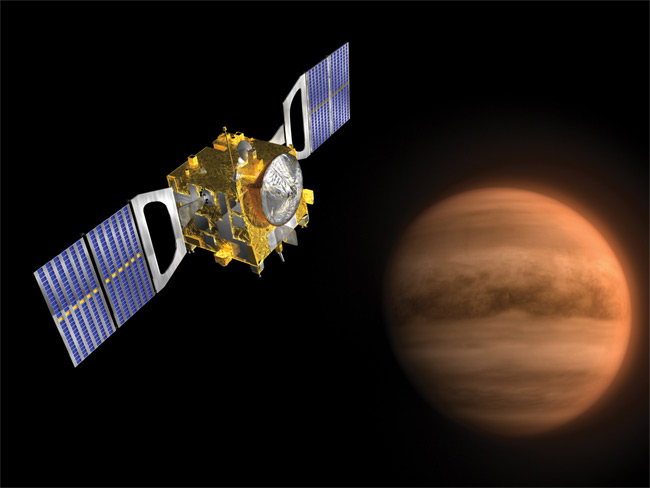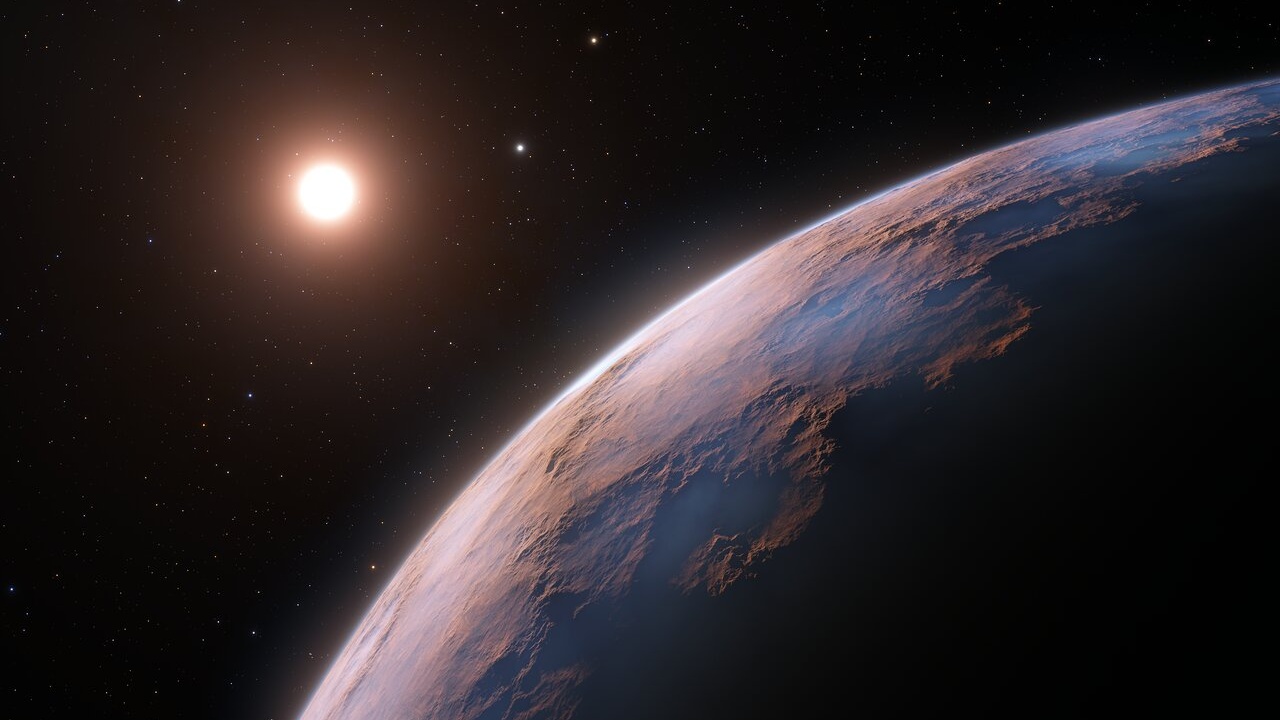Spacecraft Eyes Venus for Active Volcanoes

Venus may harbor active volcanoes that produce the highamounts of sulfur dioxide in its atmosphere.
Scientists debate whether the sulfur dioxide detected by theEuropean Space Agency's VenusExpress comes from recent volcanic eruptions, or simply lingers on fromeruptions that happened as far back as 10 million years ago.
?Volcanoesare a key part of a climate system,? said Fred Taylor, a Venus Express scientistfrom Oxford University.
Sulfur compounds don't stay long in Earth's atmospherebecause they eventually react with the planetary surface, but they may takelonger to react with surface rocks on Venus.
VenusExpress used spectroscopy to analyze how the Venusian atmosphere absorbs starlightand sunlight, which indicates the type of atoms and molecules in theatmosphere. The spacecraft watched as the sulfur dioxide in the upperatmosphere dropped by two-thirds over several days.
?I am very skeptical about the volcanic hypothesis,? said Jean-LoupBertaux, a Venus Express principal investigator from the French AeronomyService. ?However, I must admit that we don?t understand yet why there is somuch SO2 [sulfur dioxide] at high altitudes, where it should be destroyedrapidly by solar light, and why it is varying so wildly.?
Thatdramatic change in sulfur dioxide levels was smaller in the lower atmosphere,where Venus Express gauged sulfur dioxide levels by how much infrared radiationthat they absorbed. A stronger infrared signature seen by VIRTIS(Visible and Infrared Thermal Imaging Spectrometer)means more sulfur dioxide.
Get the Space.com Newsletter
Breaking space news, the latest updates on rocket launches, skywatching events and more!
"With VIRTIS, we monitor sulfur dioxide at an altitudeof 35-40 kilometers (21-24 miles), and we have seen no change larger than fortypercent on a global scale over the last two years,? said Giuseppe Piccioni, VIRTIS co-principal investigator in Rome.
Scientistshope they can confirm or disprove active volcanoes on Venus, either by lookingfor local plumes of gas rising from volcanoes or finding hot spots on thesurface that suggest fresh lava flows. That only adds up to more work ahead forVenus Express.
- Images: Beneath the Clouds of Venus
- The Wildest Weather in the Galaxy
- Gallery: Postcards from Venus
Join our Space Forums to keep talking space on the latest missions, night sky and more! And if you have a news tip, correction or comment, let us know at: community@space.com.

Space.com is the premier source of space exploration, innovation and astronomy news, chronicling (and celebrating) humanity's ongoing expansion across the final frontier. Originally founded in 1999, Space.com is, and always has been, the passion of writers and editors who are space fans and also trained journalists. Our current news team consists of Editor-in-Chief Tariq Malik; Editor Hanneke Weitering, Senior Space Writer Mike Wall; Senior Writer Meghan Bartels; Senior Writer Chelsea Gohd, Senior Writer Tereza Pultarova and Staff Writer Alexander Cox, focusing on e-commerce. Senior Producer Steve Spaleta oversees our space videos, with Diana Whitcroft as our Social Media Editor.









